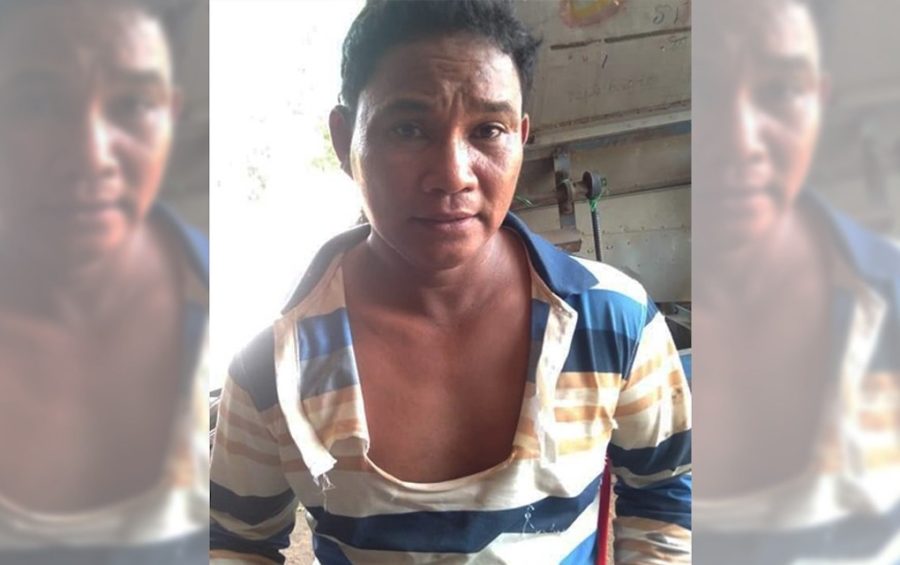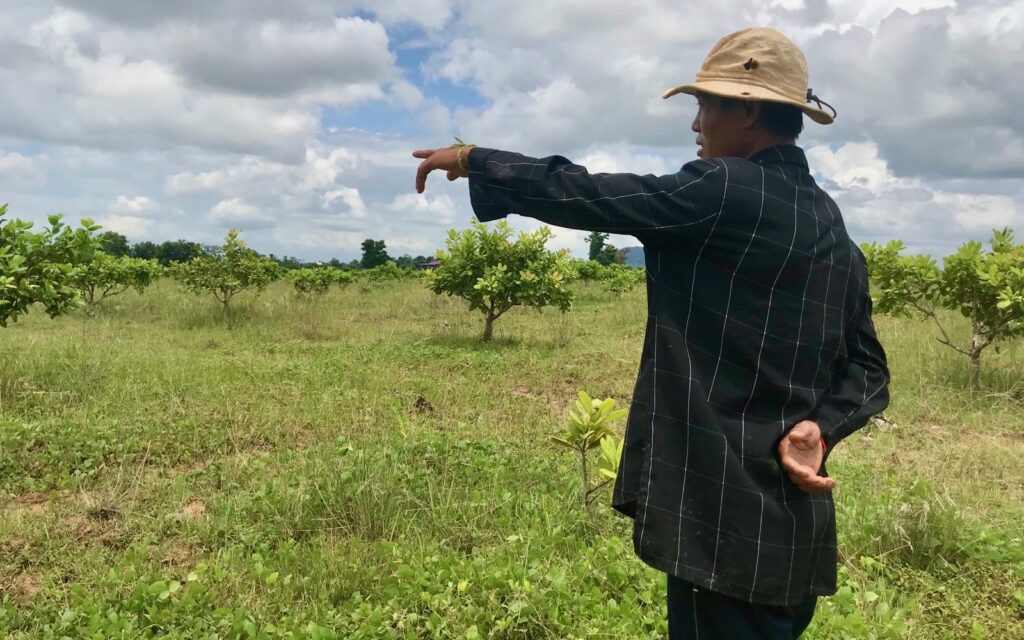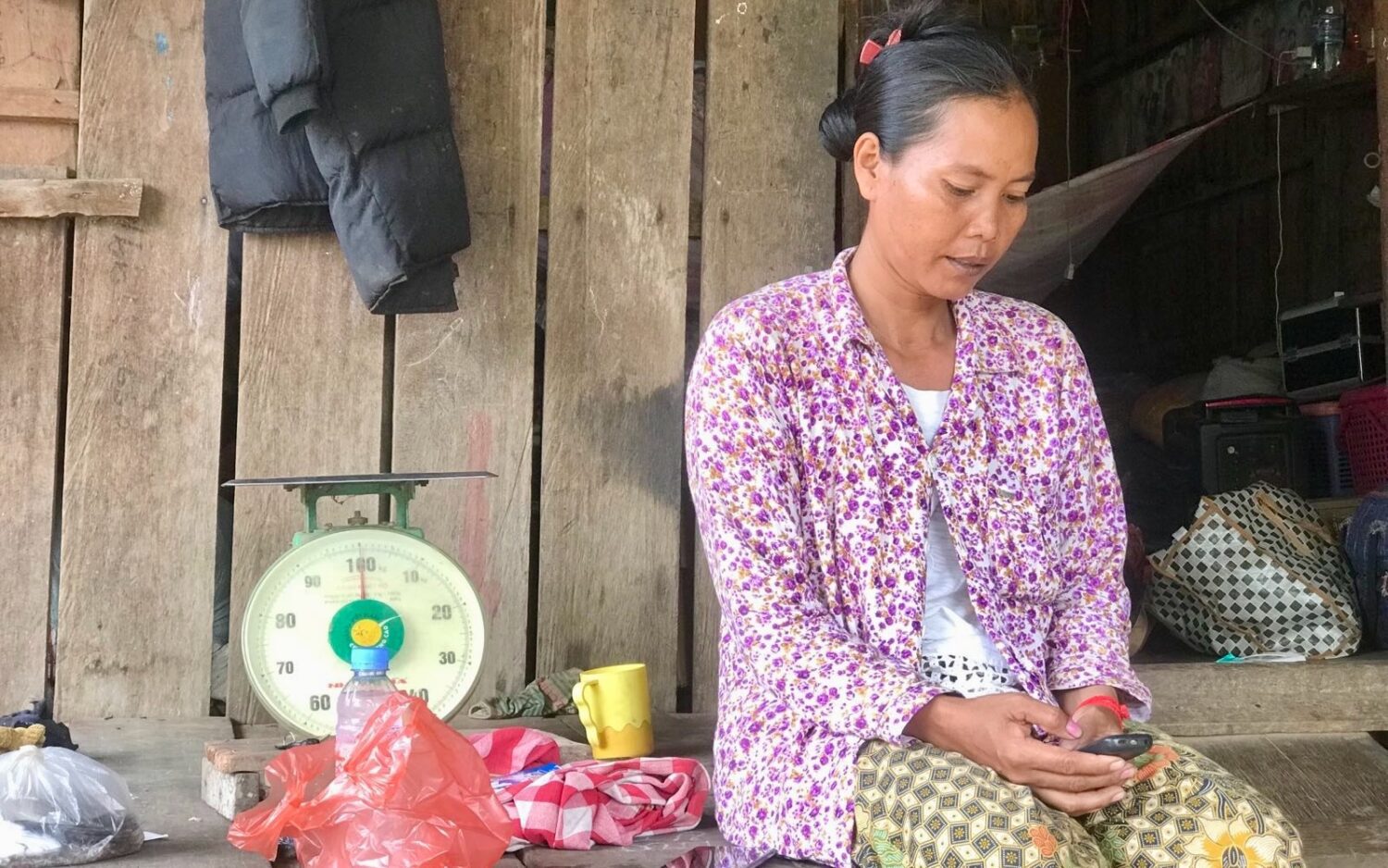Sitting alone in a small wooden house, Kham Salong, 37, says she has struggled without her husband, but still fully supports the environmental work he pursued that landed him in jail.
Chhorn Phalla became one of Cambodia’s prominent forest defenders, fronting a press conference two years ago about local authorities’ alleged complicity in illegal deforestation, violence against him at a public forum, and having a shelter burned down on his plantation.
He filed a lawsuit against 16 people in his commune, including his commune chief, deputy village chief, a police officer, farmers and wood traders, over the allegations.
But he was the one who ended up imprisoned, first sentenced in November to five years for illegally clearing land. That conviction was overturned by the Appeal Court last month, but he remains in jail after the Ratanakiri Provincial Court issued a separate verdict just a week before the appeal decision. The lower court sentenced him in the second case to six years in prison for instigating damage to forest land based on a meeting he held in 2017 discussing forest loss, according to rights groups.

His wife Salong’s home, visited by a reporter in July, is surrounded by a smattering of farming implements, including a rice-processing machine and a cage for pigs.
“Things are really difficult,” Salong says. “I think of my children and think of my husband in jail. He has high blood pressure and diabetes.”
The couple has three sons, aged 9, 11 and 15, and the oldest has begun to occasionally work on others’ farms to help bring in income for the family.
Salong believes the prosecution against her husband is an injustice. But despite the difficulties, she says he is proud of his work.
According to Salong, Phalla is originally from Kampong Cham but left his hometown about two decades ago and worked as a motorbike taxi driver in Ratanakiri. He married Salong and moved to Seda commune, where she was from and it was easy to farm.
Salong says her husband began his environmental work after hearing Prime Minister Hun Sen on the radio urging people to help protect the country’s forests. He began joining forest patrols with local authorities and community members around Phnom Ath mountain in the Lumphat Wildlife Sanctuary.
He would report illegal logging to the local environment office, but the logging did not stop, and Phalla began to try to raise awareness of alleged official complicity.
Salong says that in the past her husband worked his rice mill, processed beans, and took jobs as a cook for ceremonies and wedding parties. Since his arrest, however, that work has stopped. She visits Phalla once a month to bring him medicine.
Salong says she does not believe her husband did anything wrong.
“Every time I visit, he always tells me to keep persisting. He’s in prison but he isn’t scared. He is an innocent and honest person. He said devada will see,” she says.
About 500 meters away from Phalla’s house, his brother-in-law Chhong Ming, points to the couple’s 3 hectares of land planted with cassava trees.
Ming says the land has long belonged to the family, and was passed down to Salong 18 years ago when she got married. Around three years ago, the couple began growing cassava on the plot.
But this is the land that authorities accused Phalla of illegally clearing, leading to the initial five-year jail sentence that has since been dropped.
Ming questions that charge against Phalla, saying it seemed that other people have the right to work their land but only against Phalla faced a complaint from authorities. “Others work on the land but he can’t work on it. I don’t understand,” Ming says.

Pork Chea, a witness in the second case where Phalla was sentenced to six years in jail, says he told the court during a trial hearing that Phalla had worked to protect the forests and was not the one involved in cutting wood.
The real offenders were destroying the forest every day, but local authorities up to the provincial level were not paying attention and jailed the environmentalist instead, he testified.
Din Khornny, provincial coordinator for Adhoc, said he had attended the trial, and the case presented in court was insufficient.
“Based on the questioning, we saw that there was no offense related to clearing forestry land as the environmental official who filed the complaint against Phalla and four other people [alleged],” Khornny said. “This charge is so unjust.”
Phalla’s case has received particular attention from the U.N., which raised concerns in May about “arbitrary detention, attack, threat, criminalization and violations of the right to due process” against Phalla.
The government in turn responded about the first case that was later overturned that the facts were indisputable: “The above-mentioned factual grounds clearly prove the wicked intention of the convicted Chhorn Phalla having logged, cleared, burnt, and bulldozed the forest land for his personal ownership.”
Seda commune chief Orng Bunthea, a plaintiff in the first case, could not be reached, while provincial environment director Phon Khemrin declined to comment.
Commune police chief Sok Nape referred questions to the court, but also denied allegations that Phalla had been beaten at a public forum in 2020.
“No one was beaten. Hundreds of people were there. How could it be hidden? Not only the police, but also the district governor [and] 100 other people said no one was beaten.”
Phalla’s wife Salong says her family — and community — is from the Tampoun indigenous group and have no formal land titles for their farmland. This leaves them at the mercy of authorities’ whims, she says.
For her, that makes her husband’s work even more important despite the mounting challenges.
“I love and support what my husband did,” she says. “I want to protect it too, because the forest is everything for indigenous people.”












